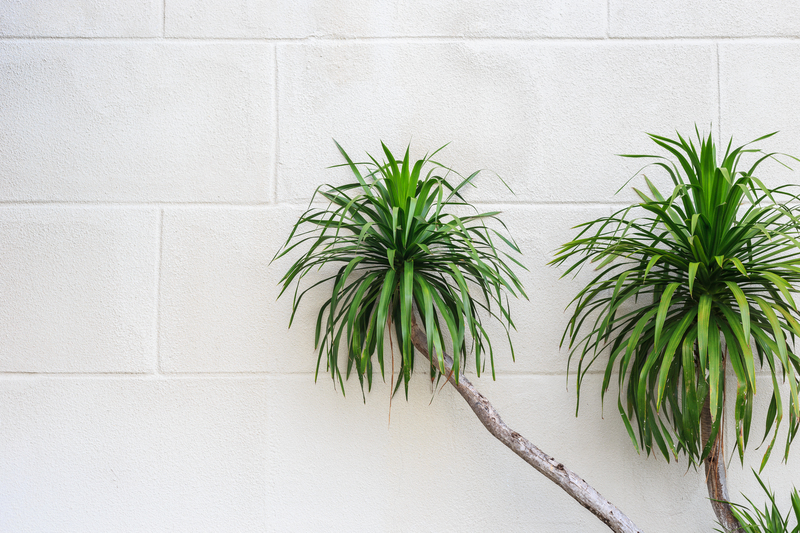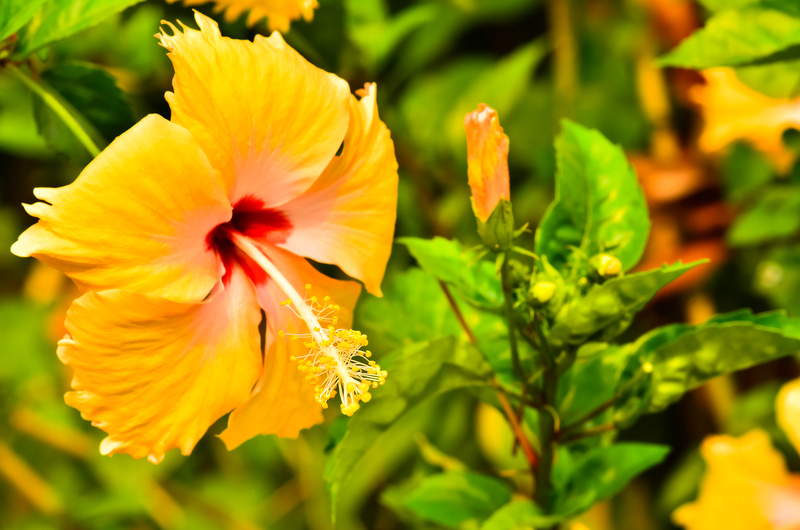Three Simple but Effective Tips for Weed Control
Posted on 05/09/2025
Three Simple but Effective Tips for Weed Control
Weed control is an essential aspect of maintaining a healthy and vibrant garden, lawn, or landscape. Whether you're an experienced gardener or just starting out, dealing with pesky weeds can be a persistent challenge. Fortunately, you don't need expensive equipment or hazardous chemicals to manage unwanted plants. With a few straightforward strategies, you can drastically reduce weed problems and keep your garden flourishing.
In this comprehensive article, we'll explore three simple but effective tips for weed control. These tried-and-tested methods are practical, eco-friendly, and suitable for gardeners of all skill levels. Keep reading to discover how you can enjoy a beautiful, weed-free space with minimal effort.

Why Is Weed Control Important?
Effective weed management is crucial for any garden or landscape. Weeds compete with your plants for water, nutrients, and sunlight, leading to stunted growth and reduced yields. They can also harbor pests and diseases that affect plant health. Moreover, left unchecked, certain invasive species can take over entire areas, causing long-term ecological harm.
- Enhances plant health: Keeping weeds at bay allows your preferred plants to thrive.
- Preserves soil nutrients: Weeds drain away vital resources necessary for plant growth.
- Improves appearance: A weed-free garden looks neat, orderly, and appealing.
- Prevents spread: Early intervention prevents weeds from going to seed and multiplying rapidly.
Now, let's dive into the simple but effective weed control tips that will help you keep your garden looking its best all season long.
Tip #1: Mulch for Long-Term Weed Suppression
One of the most efficient and eco-friendly weed control techniques is applying mulch. Mulching covers the soil surface, preventing sunlight from reaching weed seeds and inhibiting their germination. It also helps retain soil moisture, moderates soil temperature, and improves soil structure over time.
Types of Mulch for Weed Control
- Organic mulches: Bark, straw, compost, shredded leaves, and grass clippings. These materials decompose over time, adding nutrients to your soil.
- Inorganic mulches: Landscape fabric, black plastic, gravel, or pebbles. These options are durable and long-lasting but don't enrich the soil.
*To get the best results with mulch:*
- Apply a 2-4 inch layer around plants and throughout garden beds.
- Keep mulch a few inches from plant stems to prevent rot.
- Replenish organic mulch annually, as it breaks down.
Mulch is an effective weed barrier and a gardener's best friend for organic weed control.
Benefits of Mulching for Weed Management
- Reduces weed growth by blocking sunlight to weed seeds.
- Conserves moisture, reducing how often you need to water.
- Improves soil health--especially with organic mulches.
- Enhances garden appearance by providing a uniform surface.
*Pro tip:* If you notice weeds poking through your mulch, remove them promptly and add another layer of mulch to reinforce your barrier.
Tip #2: Hand Weeding and Cultivation - The Classic Approach
Although technology has changed gardening in many ways, hand weeding remains one of the most effective weed control methods. Removing weeds by hand or with simple hand tools ensures you eliminate the entire plant, including the root system--preventing new growth.
How to Hand Weed Efficiently
- Weed after rain: Soil is softer and makes it easier to pull weeds up by the roots.
- Use appropriate tools: A hoe, hand fork, or dandelion digger can help get rid of deep-rooted weeds.
- Target young weeds: Young weeds are easier to remove. Regularly patrol your garden for new arrivals.
- Dispose of weeds properly: Remove weeds from the garden, especially if they have gone to seed.
Cultivation (shallow tilling) can also be used to control small weeds by disturbing the soil surface. However, avoid deep cultivation as it can bring buried weed seeds to the surface, leading to more problems.
Advantages of Hand Weeding and Cultivation
- Complete removal of weed roots, preventing regrowth.
- No chemicals needed--safe for children, pets, and beneficial insects.
- Immediate results; you see the effect right away.
- Prevents seed spread if weeds are removed before flowering.
*Tip:* Set aside time each week for a quick weeding session. Regular effort keeps weeds under control and prevents overwhelming infestations.
Tip #3: Smothering Weeds with Strategic Planting
Nature abhors a vacuum. If you leave bare soil in your garden or lawn, weeds will quickly take advantage. One of the most effective ways to outcompete weeds is by densely planting your desired crops, groundcovers, or ornamentals.
How Plant Density Suppresses Weeds
- Dense foliage shades the soil, blocking light from weed seeds.
- Well-planned beds: Arrange plants so mature leaves overlap, leaving minimal exposed soil.
- Groundcovers: Use low-growing, spreading plants to create a living weed barrier.
Some excellent groundcover options for natural weed prevention include:
- Creeping thyme - Aromatic, attractive, drought-tolerant.
- Sweet woodruff - Shade-loving, perfect for under trees.
- Ajuga - Quick to spread, tolerates sun and shade.
- Clover - Fixes nitrogen, improves soil, suppresses weeds in lawns.
Benefits of Plant Competition as Weed Control
- Reduces available space for weeds to establish.
- Minimizes need for chemical herbicides.
- Improves biodiversity and soil health.
*Pro tip:* Choose vigorous, fast-growing plants that match your climate and soil for best results.
Best Practices for Ongoing Weed Control
While these three easy weed control techniques are highly effective, a few extra steps will maximize your results:
- Inspect regularly: Make it a habit to walk through your garden weekly, pulling any new weeds before they mature.
- Avoid disturbing soil: Dig only when necessary, as exposure brings dormant weed seeds to the surface.
- Edge your beds: Maintain clean borders to prevent lawn weeds from spreading into garden beds.
- Remove weeds before they flower: Preventing seed production is key to reducing future weeds.
Natural and Sustainable Weed Control Alternatives
If you're seeking alternatives to chemical herbicides, consider these additional techniques:
- Boiling water: Pour directly on young weeds in paved areas or between patio stones.
- Vinegar sprays: Targeted application burns weeds but avoid contact with preferred plants.
- Flame weeding: Specialized tools are available for careful use around non-flammable surfaces.
*Always use caution and follow safety guidelines when trying any homemade or non-chemical weed killers.*

Common Questions about Effective Weed Control
Can I eliminate weeds permanently?
While permanent weed elimination is difficult, consistent management greatly reduces their impact. Combining the three tips above--mulching, timely hand weeding, and competitive planting--will ensure weed populations remain low and manageable.
How do I control weeds organically?
Organic weed management strategies focus on prevention and manual removal rather than synthetic chemicals. Mulching, crop rotation, dense planting, and biological controls all suppress weeds naturally and maintain ecosystem balance.
When is the best time to weed?
Early spring and after rainfall are ideal times for effective weeding, as the soil is moist and weeds haven't yet set seed. Regular weeding throughout the growing season prevents problems before they escalate.
Conclusion: Enjoy a Healthier Garden with Simple Weed Control
*Weed control* doesn't have to be a complicated or exhausting process. By implementing these three simple but effective tips--mulching, timely hand weeding, and strategic planting--you can keep your landscape thriving and attractive. Remember that ongoing vigilance and prompt action are key to minimizing weed problems in any environment.
A consistent routine, eco-friendly methods, and a bit of gardening know-how are all you need to master weed control and enjoy the beauty and productivity of a well-tended garden. Start applying these practical strategies today and say goodbye to unwanted weeds--your plants will thank you!
Latest Posts
Must-Have Gardening Gear for Nature Lovers
Gardens: Small Spaces Making a Big Climate Difference
Tips for Designing an Interactive Garden for Kids
Ultimate Strategies for Preventing Severe Weather Damage in Gardens
From Concept to Comfort: Building Exceptional Garden Seating

